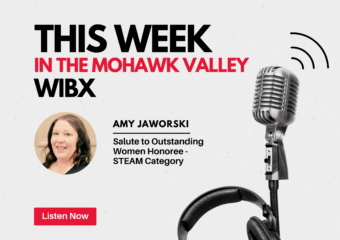Project Fibonacci® Arts is proud to announce our latest collaboration with New York based band, Live and Breathe.
The Live and Breathe is an original rock trio hailing from New York. Their music combines indie-rock sensibilities with a healthy brew of influence from world music, jazz, classic rock, and folk. With a mix of organic and processed instrumentation, a refreshingly unorthodox songwriting style and poetic cadence, the Live and Breathe’s music is worth exploring.

The members of Live and Breathe are as follows:
- Christian Arthur, guitar/keyboards/vocals
- Benjamin Wright, bass/vocals
- Corey Colmey, drums/percussion/vocals
For more info, please check out www.theliveandbreathe.com.
PROJECT FIBONACCI: RETE
Notes on Compositions
Rete: an elaborate network
1. Rotator
The rhythmic clavé heard at the start of the tune follows the Fibonacci numbers in a palindromic pattern of beats. 1 1 2 3 5 3 2 1 1. We thought it would be cool to give the tune a palindromic name as well. The melody section, heard on violin and viola, occurs first in measure 13, and the song changes meter from 4/4 to 3⁄8 at a golden ratio related time in the song (total time of song × .618).
2. Moonglow
The pitch range of the vocal melody follows the Fibonacci sequence; starting at 1 note when the vocal begins, advancing to a range of 2, 3, 5, then 8 notes within the scale. The outro section has a chordal cadence that starts at 1 iteration, then 2, then 3 underneath the viola solo. Lyrically, this song is a reflection on our device driven world and the often ignored need to connect with nature.
stories
one and all
people full up with stars
passion on the late train
her fingers punch the cold refrain
O write me something true Moon glow or sun flare Bring me only you
its the end, i don’t care
sounds
paint the air
billions of messages fly
but we came before this dance we’ve traveled ‘cross the wide expanse
O write me something true Moon glow or sun flare Bring me only you
its the end, i don’t care
so, will you meet me in the garden with the moonlight? go, and retreat into the grass and the sugarcane
Go and lock away the cold refrain
O write me something true Moon glow or sun flare Bring me only you
its the end, i don’t care
3. Dar a Luz
The melody was the start for this song. Based on Fibonacci numbers through a major scale, 1st 2nd 3rd 5th 8th(octave) and 13th(6th). The string intro, repeated after the first melodic section, is based on pitches associated with Fibonacci ratios and just intonation (see http://www.kylegann.com/tuning.html ). We then also tuned an electric guitar to the same just intoned scale based on Fibonacci ratios C (1/1) Ab (8/5) C (2/1) G (3/2) A (5/3) and C (3/1) and used the natural resonance and reverb in the studio, a Fibonacci room, to create feedback and sympathetic resonances within the room and the instrument. The name from Spanish, literally means ‘to give light’. It is commonly used in the figurative for giving birth.
4. Sage, Ochre
The melodic phrasing in this tune follows the Fibonacci sequence. With rhythms of 1 note, 2, 3, 5, then 8 in the lead vocal. It doesn’t continue the pattern throughout the entire song but rather uses the sequence as a starting point to develop more naturally.
sage
ochre
lavender
just wear anything
love
won’t ya?
you’ll be fine
so will everyone
there’s no lack of inspiration
no shortage of stars and constellations
no color coded guide is on it’s way to your eyes …I still wait for your reply
sage
ochre
lavender
just wear anything
Now you’re the color of rust
Of corn stalks in the late rays
We wander the last days of autumn Just us
love
won’t ya?
you’ll be fine
so will everyone
5. Croquis
Meaning “Sketch” in French, this piece starts on a Bb as the 1st chord, followed by a C chord (2 chromatic steps higher), followed by an Eb chord (3 step higher), followed by an Ab (5 steps higher), followed by an E chord (8 steps higher). The melody in the middle section plays around a theme found elsewhere on the record (in Dar a Luz , and Adret ) the 1, 1, 2, 3, 5 phrase.
6. Katapayadi
An ancient Indian system which assigns letters to numerals for easy remembrance of numbers as words or verses. Assigning more than one letter to one numeral and nullifying certain other letters as valueless, this system provides the flexibility in forming meaningful words out of numbers which can be easily remembered. In this tune we are singing the katapayadic syllables associated with Fibonacci numbers from 0-144.
7. 8. Ubac and Adret
The names are in reference to the shady side and the sunny side of a mountain. Derivative of yin and yang, these two ideas bring balance to each other, coming back to the interconnected theme of the album. The two pieces of music were written in relation to the circle of fifths. Fibonacci intervals were figured in order of sharps for one piece, and order of flats for the other. Harmonies were then added to the Fibonacci related roots and the songs were born. The nylon guitar figure in the second song plays a chordal part with a Root, Root, 2nd, 3rd, 5th melodic pattern.
9. Canopy
This piece is intentionally loose in rhythm and tempo, creating a natural, non-linear advancement through the song. There are repeating rhythmic groupings of 2 and 3 throughout the guitar performance.
I was afraid
to state my case
when they came for me
so I took my place
up here in the trees
in the cold weather canopy “are you serious?”
serious, come on. holler.
I don’t know the way
to righteousness,
But I built this home with my very own hands
and I’ll conversate
with any man
who dares to equate such a cabin with some second-rated amen.
“Are you serious?”
shoo fly shoo shoo fly shoo
10. Ultimo Suspiro
11. In A Crease of Daylight
The poem over the drum circle has word stresses in each line that follows the Fibonacci sequence. Starting at 8 stresses and going backward through the sequence to 1. The poem is a sort of reflection on the 3 phases of life; youth, middle-age, and old-age.
8 in a crease of day light we say the words , strange and blind to rhy thms of mem ory 5 we’re warm hands on cold skin , play ing
3 giv ing the world a name
2 stor ies told
1 with chalk 1 in the rain
8 fleet ing bits of wis dom sung by a chorus of pass ionate lovers , lost . 5 the wild eyed builders of the new bridge
3 baked by the con stant sun
2 for ward on
1 the march 1 the quest
8 a bleed ing book on a shat tered ship , no wind, no rest 5 we read the words in ev er- short er breaths
3 as if we knew the score ,
2 the count of days
1 to play
1 once more
12. Other Waters
Other Waters, originally meant for solo piano, and then adapted for piano, bass and voice, is a composition inspired by the Fibonacci principle in a few ways. Musically speaking, the Key notes of the melody are modeled after the beginning of the Fib sequence using their intervallic relationship to the tonic. Conceptually, the lyrics apply to the attempt to make sense out of the seeming randomness of the natural world, and the fact that there is at the very least, a unifying principle that governs us, even though we are not aware.
I turn it on
I turn it off
There’s something different about it now
To never be
The ones you notice But we’ll stay until the sun burns out
What’s barely us
Is mostly you
It’s reciprocal our enterprise
Bring Heraclitus
Now more than ever
We can wait until the sun burns out
The bend of time
Is like a child
Playing checkers in outer space From all things one
Is one from all things
You could never step into
The same river more than once Other waters flowing in
Flowing inPurchase on iTunes



